28th December 2015 New Delhi, India
UK and India to work together to fight superbugs
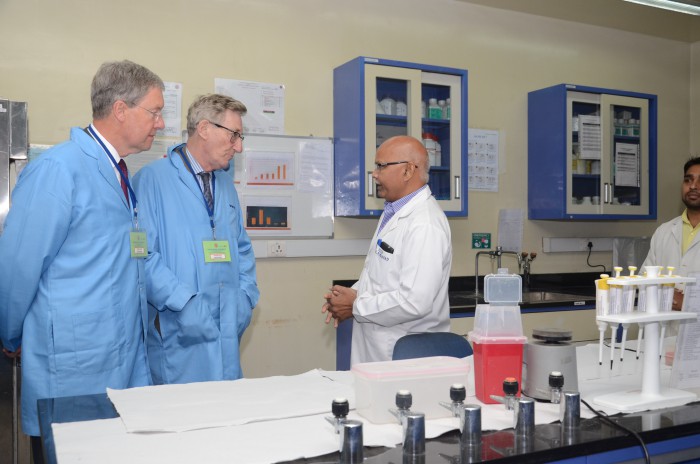
Antimicrobials, our lifeline to modern medicine, are today under grave threat, with antimicrobial resistance sitting alongside climate change and terrorism on the Global Risk Register, as a global public health priority for the UK. Globally, by 2050, drug-resistant infections could cause 10 million extra deaths a year and have a cumulative cost of US$ 100 trillion. And the global fight to save antimicrobials has only just begun. 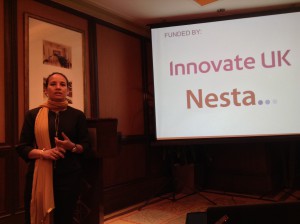
2015 has been an interesting year The World Health Organization adopted the Global Action Plan in May, and through the Global Health Security Agenda, the G7, and the upcoming Chinese presidency of the G20, the global dialogue on Antimicrobial Resistance is intensifying. As the world observed its first ever World Antibiotic Awareness Week in November this year, UK’s cooperation with India in this area became stronger as well.
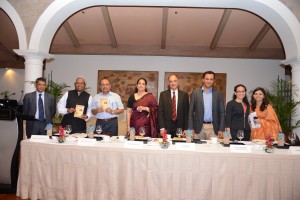 Through jointly funded research centres and multi-sectoral research programmes, a strong policy dialogue, innovation tie-ups, organisational links, collaboration between pharmaceutical companies and innovators, the Jim O’Neill review, and a new, £25000 project on antimicrobial stewardship programs for Indian hospitals, implemented by the British Society for Antimicrobial Chemotherapy, and funded through the FCO Prosperity Fund (recently covered by The Independent), UK and India are building an unbeatable partnership to save medicine’s ‘wonder drugs’.
Through jointly funded research centres and multi-sectoral research programmes, a strong policy dialogue, innovation tie-ups, organisational links, collaboration between pharmaceutical companies and innovators, the Jim O’Neill review, and a new, £25000 project on antimicrobial stewardship programs for Indian hospitals, implemented by the British Society for Antimicrobial Chemotherapy, and funded through the FCO Prosperity Fund (recently covered by The Independent), UK and India are building an unbeatable partnership to save medicine’s ‘wonder drugs’.
As a part of this partnership, in October this year, we promoted UK Government’s £10 Million Longitude Prize, focused on finding a diagnostic solution to tackle Antimicrobial Resistance, through events across Delhi, Bengaluru, Hyderabad, and Mumbai, involving Indian Government departments, researchers and innovators, technology incubators, entrepreneurs, hospitals, and the pharmaceutical industry. The visiting team from NESTA (National Endowment for Science, Technology, and the Arts) the independent charity running the Prize, and advisers from UK and Indian Universities and Hospitals, engaged with the scientific community as well as the regulatory and government authorities to ensure more teams from India register for the prize, and to stress the need for multidisciplinary cooperation to fight the huge global public health challenge posed by Antimicrobial Resistance.
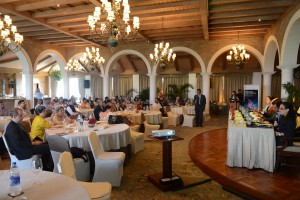 The Indian Department of Biotechnology, Indian Council of Medical Research, Ministry of Health & Family Welfare, and multiple innovation hubs, all committed to supporting the prize through their networks in India, and showed a deep interest in collaborating closely to ensure the winning team is from India!
The Indian Department of Biotechnology, Indian Council of Medical Research, Ministry of Health & Family Welfare, and multiple innovation hubs, all committed to supporting the prize through their networks in India, and showed a deep interest in collaborating closely to ensure the winning team is from India!
This series of events came a week after the visit of the UK’s Medicines and Healthcare products Regulatory Authority (MHRA) to India during which the MHRA signed an MOU with its Indian counterpart, the Central Drugs Standard Control Organisation (CDSCO). The two regulators agreed to work together to ensure better, more transparent, and efficient regulation for drugs, resulting in availability of safer medicines to Indians, and to people around the world.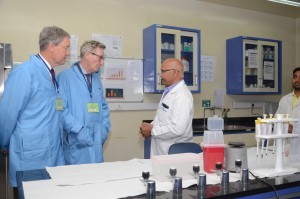
It is interesting to note that during their India visit, the MHRA team discussed with the Department of Industrial Policy and Promotion (DIPP), India’s interest in becoming compliant with the Pharmaceutical Inspection Convention and Pharmaceutical Inspection Co-operation Scheme (jointly referred to as PIC/S). This could signal a big change in the regulatory system for drugs in India, with a more uniform, national system. This comes after the Cabinet Committee on Economic Affairs approved a proposal to strengthen the drug regulatory system at a cost of INR 1750 Crore (Approximately GBP 175 Million), earlier this year. A stronger regulatory system for drugs in India would contribute significantly to improved drug quality globally as pharmaceutical export volumes from India grow. This also has the potential to help the fight against Antimicrobial Resistance globally by ensuring availability of optimal dosage of drugs.
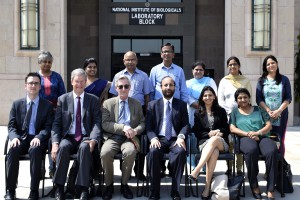 To sum up, Antimicrobial Resistance continues to be a high priority area for the UK-India relationship, and was mentioned by PM Modi in his recent visit to UK, as an area the two countries would work together on. Coordinated global action is the only way to squash the superbugs threatening the very existence of modern medicine, and India is a crucial partner as the effort to tackle Antimicrobial Resistance intensifies.
To sum up, Antimicrobial Resistance continues to be a high priority area for the UK-India relationship, and was mentioned by PM Modi in his recent visit to UK, as an area the two countries would work together on. Coordinated global action is the only way to squash the superbugs threatening the very existence of modern medicine, and India is a crucial partner as the effort to tackle Antimicrobial Resistance intensifies.